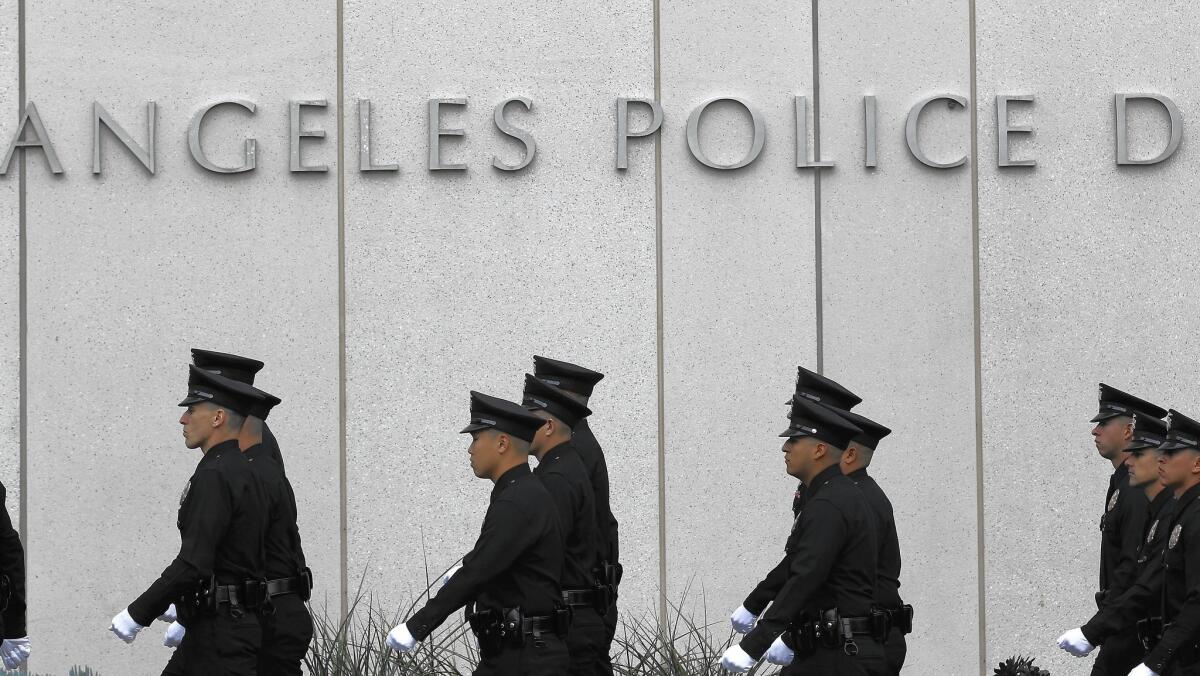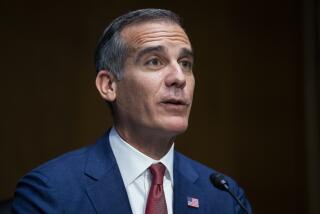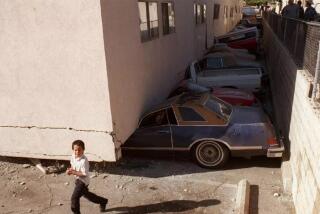Who really listens to L.A. mayor’s State of the City speech?

- Share via
Mayor Eric Garcetti’s second State of the City speech Tuesday night had many of the trappings of a landmark address on public policy: an elegant setting on a university campus, a rapt crowd of reporters and guests handpicked from Los Angeles’ political and business elite.
One thing Garcetti might not have had is the attention of the people who elected him leader of America’s second-largest city.
It is a question that looms every year over L.A.’s State of the City speech: Who’s really listening? Unlike the president’s State of the Union speech, on which it is modeled, the mayoral address has never been a must-see piece of political theater. Not only does it lack the glamour of the president’s annual address to Congress, but the city whose state Garcetti set out to describe is also one in which many residents are often content to ignore local politics.
“I don’t think a lot of people — real people, as I call them — will be talking about the speech tomorrow, no matter how good it is,” longtime Los Angeles political consultant Rick Taylor said.
At every level of government, there is a gulf between the interests of such “real people” and those of the insular world of elected officials, political aides and reporters. But that gulf is magnified in L.A., whose citizens have historically lacked other city dwellers’ fascination with urban politics as a spectacle and source of pride.
“This is a city in which people do not pay attention to City Hall as much as they do in, say, New York or Chicago,” said Raphael Sonenshein, executive director of the Pat Brown Institute of Public Affairs at Cal State L.A. The speeches themselves, meanwhile, have often steered clear of bracing visions for the city’s future, instead turning into laundry lists of mayors’ accomplishments and initiatives.
“I don’t think there have been that many that are memorable,” Sonenshein said of the State of the City speeches.
Turnout in L.A.’s city election last month was less than 9%. Despite this backdrop of chronic civic disengagement, the State of the City speech at least offers the mayor a rare chance to outline his agenda for the public at a single time and place, Sonenshein said.
“Since attention is low, and the mayor wants people to get a sense of where he wants to go, it’s an unusual opportunity,” Sonenshein said.
Garcetti used that opportunity Tuesday night to announce several new public-safety initiatives aimed at combating the recent rise in violent crime. The mayor said he would be shifting 200 officers from elsewhere in the Police Department to its Metropolitan Division, an elite group that fights crime in different areas of the city, and creating a community-policing division.
Garcetti also used the speech to draw attention to key ongoing initiatives he has launched during his first two years in office, including proposals to mandate retrofitting of buildings likely to collapse in a major earthquake and raise L.A.’s minimum wage. Both proposals are being debated by the City Council.
Former Mayor Richard Riordan, who steered L.A. through a turbulent period that included the Police Department’s Rampart Division corruption scandal and reform of the City Charter, said he was unsure how much his State of the City speeches over his eight years in office resonated with city residents. If nothing else, he said, preparing the speech is an important exercise for whoever holds the mayor’s office.
“It forces you to really think ahead, which is the sign of a great leader,” Riordan said.
Ultimately, he added, L.A. residents care more about a mayor’s concrete accomplishments than his words once a year.
“It’s really about what you eventually do,” Riordan said. “People will be aware of it after you do it, not after you say it.”
Follow @PeteJamison for more news from L.A. City Hall.
More to Read
Sign up for Essential California
The most important California stories and recommendations in your inbox every morning.
You may occasionally receive promotional content from the Los Angeles Times.











